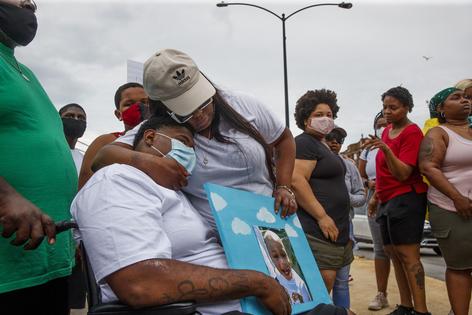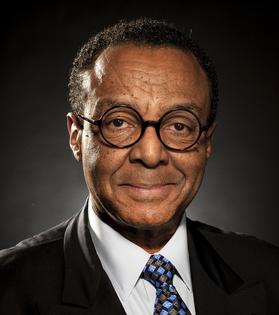Chicago can ‘partner’ with its police, with their help
Even before Chicago’s carnage-infested Father’s Day weekend was finished, the predictable emails from readers began to flow in.
“Where’s Black Lives Matter now?” they asked in so many words.
The surge was predictable. At least 106 people were shot in Chicago, 14 of them fatally, over the weekend, the highest number of shootings in one weekend since at least 2012, according to the Chicago Tribune.
Catching the most attention among the deaths, 3-year-old Mekhi James in the West Side’s Austin community was fatally shot in a drive-by that police said appeared to be intended for his dad.
And again we are shocked. Chicago has had lots of gun-related crime shocks in recent years.
And as in other cities, some of these have been protested by the Black Lives Matter movement, formed to push back against police shootings of unarmed African Americans.
I’m not a big fan of the movement, although as a Black man I’m happy when anybody thinks that we matter. The movement’s name, for starters, is too vulnerable to distortion and demonization by its critics and opponents who want to cast the group as promoting Black supremacy.
Its leaderless resistance-style of organizing also leaves it vulnerable to hijacking of its mission and public image by people who don’t have the movement’s interests in mind, except perhaps to make it a scapegoat for right-wing or racially tinged rage.
“All Lives Matter,” go the anti-BLM factions, supposedly claiming the moral high ground.
To which I, as an African American who pays attention to such things, respond, true, but too often Black lives don’t matter enough.
The leading example these days is George Floyd, whom the world has watched on video choking to death with the knee of Minneapolis police Officer Derek Chauvin on his neck, uninterrupted for more than eight minutes by three other officers standing by. All four have been fired and charged in connection with the death.
Suddenly the grotesqueness of the image and the officer’s casual expression as Floyd helplessly choked out, “I can’t breathe,” and called out for his mother struck a nerve that transcended borders.
Suddenly with this particularly horrendous video, skeptics around the world seemed to understand with new clarity what Black Lives Matter protesters had been chanting about.
Public approval of the movement roughly doubled, according to the Pew Research Center and other pollsters. Two-thirds of American adults surveyed said they support the movement, with 38% saying they strongly support it.
Besides Black Americans, among whom support was particularly strong, 60% of white Americans, 77% of Hispanic Americans and 75% of Asian Americans also expressed support.
But supporting Black Lives Matter only begins another very necessary debate about other crimes against Black people, most of which are committed by Black criminals.
Contrary to the impression given by some conservative pundits and Twitter trolls, Black people do get out and march against Black-on-Black violence in their communities. But, sad to say, Black-on-Black protests don’t get as much media attention outside the African American press as those that cross racial lines.
“We say Black lives matter,” said the Rev. Ira Acree of Greater St. John Bible Church at a Chicago street corner gathering on Sunday afternoon to mourn Mekhi James and other children killed in weekend violence. “But we’re here to say Black baby lives matter more.”
So why have we Americans argued for more than a half-century about urban crime when we agree on so much? Unfortunately, it has been easier for some people to cling to spurious and often partisan excuses for inaction.
It’s easy to criticize or ridicule Black Lives Matter. It’s tougher but more rewarding to actually produce programs and policies that can reduce the problems that Black Lives Matter is protesting about.
Like “Black power,” Black Lives Matter is a slogan in search of an agenda. For instance, I think we need to improve the police, not “abolish the police,” as another misleading slogan goes.
At a news conference, Chicago’s new police Superintendent David Brown, the former Dallas chief who has been in his new job for only a couple of months, said he would push for changes that include more street outreach to improve community relations and cooperation with the civilians whom the police are sworn to serve.
He also asked for “just a little help” from other “partners” in the criminal justice system to deal with such problems as violent felons released from jail to reduce the coronavirus spread. No need to be modest.
Police need a lot of help from all of us in fighting crime, and we, the public, need their help to make that cooperation happen.
========
(E-mail Clarence Page at cpage@chicagotribune.com.)
(c) 2020 CLARENCE PAGE DISTRIBUTED BY TRIBUNE MEDIA SERVICES, INC.










